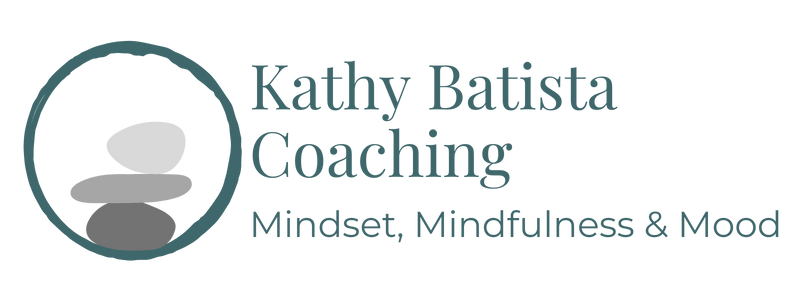6 Surprising Signs of Perimenopause and How to Manage Them
If you are in your 40s and find yourself wondering, "What is happening to me?" you may be experiencing perimenopause or menopause transition. This transition can last anywhere from one month to ten years before menopause. During this time, women may experience some symptoms that come and go. Some of the most common are irregular periods, night sweats/hot flashes, and mood swings. While these are the most common, there are some that you may never have realized are connected with perimenopause.
Peri-What?
When I was a young mother, an older woman looked at me intently and said, "Once you hit 40, everything changes." I did not quite understand what she meant. After all, forty is just a number, right? I have seen headlines plastered with the news that "50 is the new 40," and you no longer see the hype and black-draped birthday celebrations of "Over the Hill"” As medicine improves and we make technological advancements, haven't we also slowed this aging process? It can't be that bad...but then 40 happened.
It’s all part of aging, right?
While turning 40 doesn't mean you're ready for the casket, some changes start to happen that you may not even recognize as being part of the transition into menopause. Wait, you say...isn't menopause just for older women? How did menopause suddenly come into a conversation about 40-year-olds? Menopause is a natural time of aging that begins in women when they are typically between 48-52 years of age. The reproductive system begins to "close up shop," as it were, and the ovaries are no longer producing hormones. There are many symptoms of menopause because of the significant hormonal changes women are experiencing. However, we now know that menopause doesn't just start out of the blue. The body is transitioning through steps on this pathway of aging.
But what’s normal and what isn’t?
So back to that lady I mentioned… Like just telling me it all changes, and it is terrible. When I think about what I was taught or told about Menopause, it was hot flashes, no periods, and crankiness. And Perimenopause - never mentioned. Over the last few years, some fantastic strides have been made in public awareness and education about Perimenopause and Menopause. We hear more about its timing and symptoms. Some more well-known signs are brain fog, irregular periods, insomnia/sleep disturbances, decreasing fertility, changes in sex drive, mood swings, and the old #1 - hot flashes.
This blog entry intends to highlight some lesser-talked-about signs. Anything we can to help each other through this stage of life, right?
Managing the Little-Known Signs of Perimenopause
Below are six surprising signs of perimenopause and some ideas about how to manage them:
1. Allergies
In the doctor's office, I always used to be able to check "no allergies" on their form. Suddenly, I found myself with allergic responses to environmental allergens. What made this happen? The reason for increased allergy susceptibility during perimenopause is that the decreasing estrogen levels bring about a stress response in the body. As a result, the body starts producing more histamine, which produces allergic responses. How can you manage allergic responses? One way to help prevent allergic responses is to keep things clean and free of dust and mold. Over-the-counter antihistamines and saline nasal rinses can help alleviate allergy symptoms.
2. Dry Mouth
Those dropping hormone levels can wreak havoc on all parts of the body. Another little-known symptom can be dry mouth, as the salivary glands start producing less saliva. To alleviate this symptom, try drinking more water. Avoid breathing through your mouth as much as you can. Chewing sugarless gum or sucking on sugarless gum may help. Keep your oral hygiene up to snuff by brushing regularly and using an alcohol-free mouthwash.
3. Itchy Skin
Estrogen is connected to the production of collagen in your skin and the natural oils that keep your skin moisturized. So when estrogen levels begin to drop, you can also notice changes in your skin. Your skin can begin to thin and feel itchy. To treat itchy skin, try a high-quality moisturizer or an oatmeal bath. Other topical treatments like calamine lotion or Aloe Vera may help to alleviate the itchy sensation. Vitamin C or other herbal supplements may also help with this issue.
4. Fatigue
While you may feel fatigued for a host of reasons, one possible reason is perimenopause because hormones help regulate your metabolism. When those levels drop, you can experience fatigue. How can you fight back against this feeling? Some possible things you can do are: exercise regularly, have a good sleep routine, and eat smaller and healthier meals. Many of the strategies that help combat stress can also help mitigate the effects of perimenopause fatigue. Take a mental break and do something you enjoy. Connect with nature and think about positive things.
5. Body Odor
As if all of these symptoms weren't challenging enough, perimenopausal women can also experience increased body odor. This happens because the decreased estrogen levels make the body sense that it is overheated and needs to be cooled. As a result, perimenopausal women can produce more sweat, leading to more body odor. There are medications that can help if the situation becomes unbearable, but women can also treat this with a stronger antiperspirant, soaps, or body sprays.
6. Thinning Hair
The powerful hormones also help hair growth, so women can also experience thinning hair when their levels decrease. While there may not be a treatment to keep you from losing hair, you can help your overall health and keep balance by reducing stress, eating well, exercising, and getting enough sleep. These things can generally help with your body's responses which could slow hair loss.
While these symptoms may feel discouraging and frustrating, it is important to remember that you aren't alone! It's a natural experience for women and there are ways to manage these and live a full and healthy life. Since we are all in this together, supporting one another is one of the best ways to get through it.



